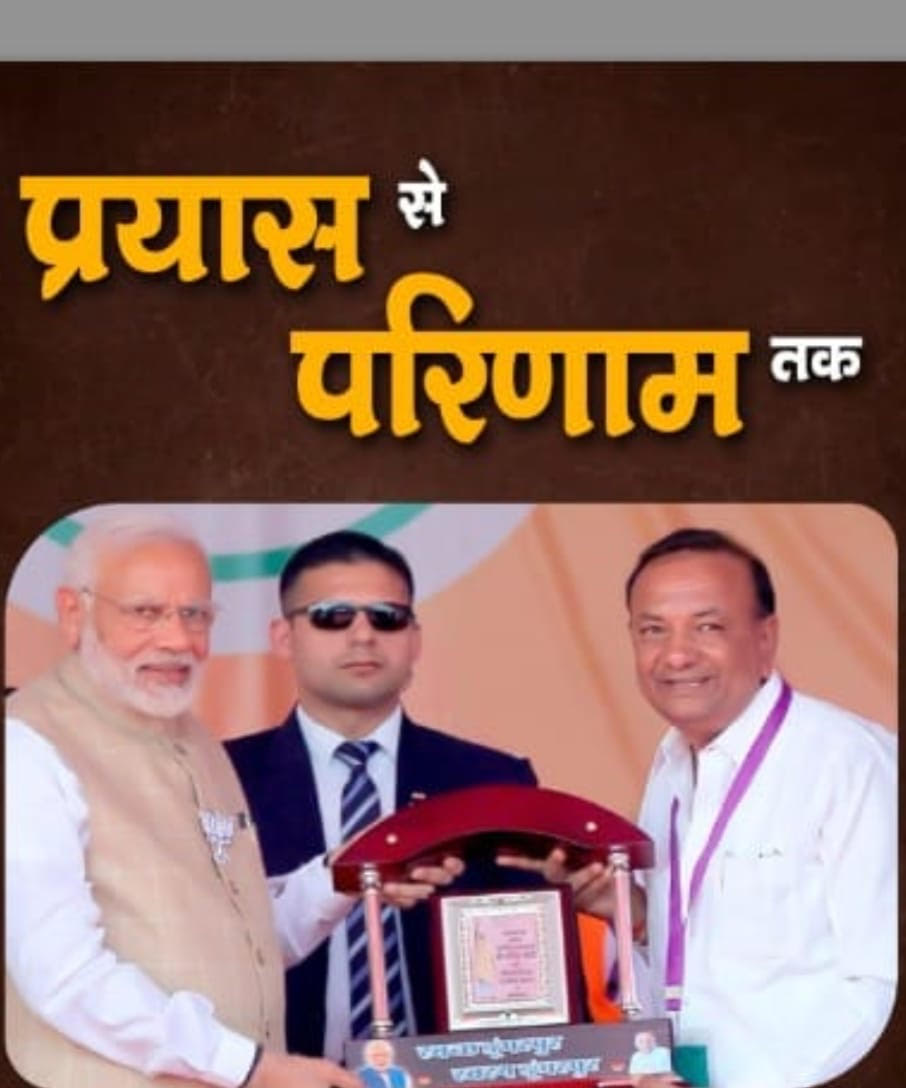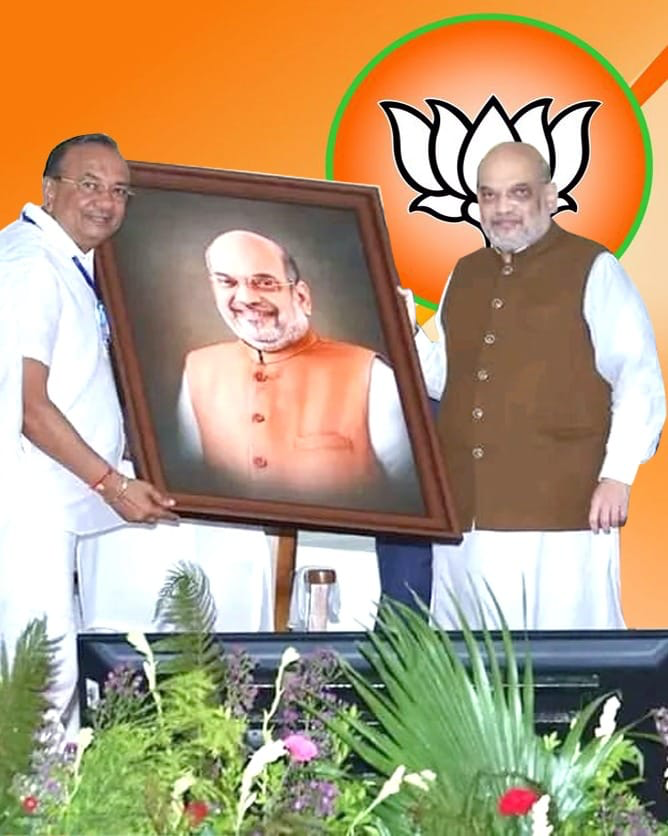#### Dungarpur Emerges as the Model City of Modi’s Vision
KK Gupta calls for ‘Cleanliness Emergency’ across India, urges strict punishment for negligence

:New Delhi. Dungarpur, a historic city in the tribal belt of South Rajasthan, has once again brought national pride by securing a prestigious award in the National Sanitation Survey for the fifth consecutive year, firmly establishing itself as a city aligned with Prime Minister Narendra Modi’s vision of a Clean India.

KK Gupta, former Chairman of Dungarpur Municipal Council and State Coordinator of the National Cleanliness Mission (Rural), congratulated the residents of Dungarpur and the municipal team for this achievement. He expressed that the seed of cleanliness sown during his tenure has now flourished into a fruitful banyan tree, thanks to community participation.
On Thursday, President Droupadi Murmu honored Dungarpur with the Super League City Award in the small population category during a ceremony in New Delhi, a recognition that places Dungarpur alongside India’s cleanest cities.
Gupta emphasized that like Dungarpur and Indore, every city in India must transform cleanliness into a mass movement. He stressed the need for residents to refrain from dumping waste in the open, and for municipalities to ensure timely and segregated collection of wet and dry waste. He credited over 22,000 school students of Dungarpur for playing a critical role in demonstrating that population size does not hinder cleanliness success.
Highlighting the Prime Minister’s repeated calls for cleanliness — including his famous message on Gandhi Jayanti that no force can keep the country dirty if every citizen decides to keep it clean — Gupta underscored the PM's appeal of devoting 2 hours weekly and 100 hours annually for sanitation work.
He also appreciated the government’s focus on the construction of toilets, behavioral change, and ensuring dignity and safety for women — stressing that achieving a Clean India is foundational to a prosperous and developed India.
Call for Accountability and Punishment
Gupta called for legal provisions to punish those who are negligent toward cleanliness, equating the impact of unhygienic conditions with indirect threats to human life. “If someone can be imprisoned under Section 302 for taking a life, then why shouldn’t the responsible officials be held accountable for deaths due to filth-induced diseases?” he argued.
He urged that poorly performing municipalities be held accountable and their officials be sent to model cities like Dungarpur for training. Strict action should be taken against officials of cities with weak cleanliness performance.
Cleanliness Must Not Be Just a Rank
Cleanliness, Gupta stated, is not just about rankings — it significantly influences public health. In Dungarpur, government hospital data reveals that 62% of ailments were due to filth-related diseases. Despite large budget allocations, many cities still remain dirty, plagued by unattended garbage piles, plastic waste, stray animals, and foul-smelling garbage yards.
He warned that the government spends more than ₹3,500 crore annually under Ayushman Bharat to treat such diseases — funds which could otherwise be used for development. Cleanliness negligence, therefore, directly impedes national progress and tourism.
Urges for Nationwide Cleanliness Emergency
Gupta recommended declaring a ‘Cleanliness Emergency’ across India, underlining the role of both municipal bodies and village panchayats. “Municipalities must treat cleanliness as their primary responsibility, not just a paper promise,” he said.
Citing the January 2024 Ram Mandir consecration, he recalled how a cleanliness drive was launched to purify temples and pilgrimage sites, reinforcing the sacredness of cleanliness — “where gods reside, people thrive.”
Gupta concluded with a vision: “Every corner of every village, town, or city should reflect pride and admiration. Visitors must exclaim — ‘What a city!’ That is the true realization of the Prime Minister’s vision, just as seen in Indore and now, in Dungarpur.”
साभार :
© CopyRight Pressnote.in | A Avid Web Solutions Venture.






